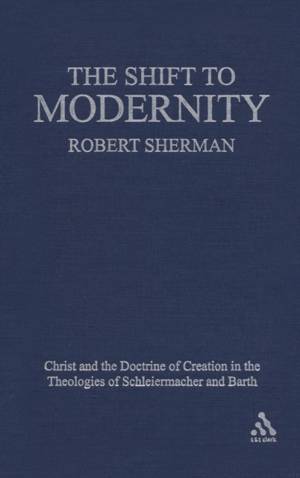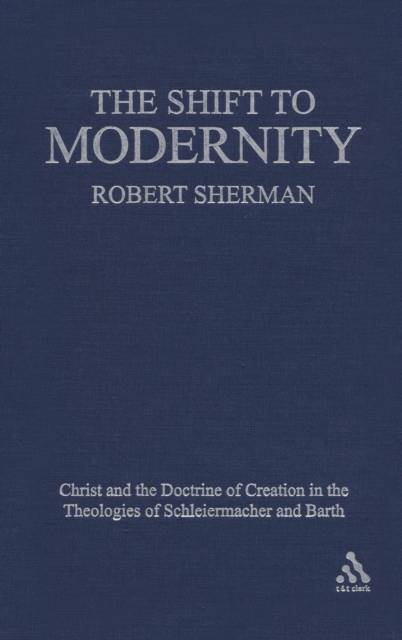
Bedankt voor het vertrouwen het afgelopen jaar! Om jou te bedanken bieden we GRATIS verzending (in België) aan op alles gedurende de hele maand januari.
- Afhalen na 1 uur in een winkel met voorraad
- In januari gratis thuislevering in België
- Ruim aanbod met 7 miljoen producten
Bedankt voor het vertrouwen het afgelopen jaar! Om jou te bedanken bieden we GRATIS verzending (in België) aan op alles gedurende de hele maand januari.
- Afhalen na 1 uur in een winkel met voorraad
- In januari gratis thuislevering in België
- Ruim aanbod met 7 miljoen producten
Zoeken
The Shift to Modernity
Christ and the Doctrine of Creation in the Theologies of Schleiermacher and Barth
Robert Sherman
Hardcover | Engels
€ 339,45
+ 678 punten
Uitvoering
Omschrijving
The general goal of this book is to add one more voice to the growing chorus of opinion that the theologies of Friedrich Schleiermacher and Karl Barth may have far more in common that the many insistent assertions of the latter, or the partisans of either, would lead one to believe. While there can be no easy reconciliation of the differences which do in fact exist between these two figures, the book will argue that these differences do not always stem from irreconcilable starting points. This book will investigate one aspect of their theologies-the doctrine of Creation. The thesis of the book asserts that both Barth and Schleiermacher take a Christological orientation to the doctrine of Creation. Approaching their theologies in this fashion allows them to solve the problem of maintaining dogmatic coherence and continuity with the Church's historic confessions while also meeting certain modern, external intellectual demands confronting those systems. To put it more sharply, this study claims that each uses Christ as the hermeneutical key for interpreting Creation, and that each does so in an effort to remain true to the faith handed down from the past while maintaining intellectual integrity in the present. This underlying connection perceptible in both Barth's and Schleiermacher's work forges one continuity between them and suggests that there may be certain fundamental similarities in their respective theologies in spite of other well-known differences.
Specificaties
Betrokkenen
- Auteur(s):
- Uitgeverij:
Inhoud
- Aantal bladzijden:
- 260
- Taal:
- Engels
Eigenschappen
- Productcode (EAN):
- 9780567028709
- Verschijningsdatum:
- 12/04/2005
- Uitvoering:
- Hardcover
- Formaat:
- Genaaid
- Afmetingen:
- 162 mm x 237 mm
- Gewicht:
- 666 g

Alleen bij Standaard Boekhandel
+ 678 punten op je klantenkaart van Standaard Boekhandel
Beoordelingen
We publiceren alleen reviews die voldoen aan de voorwaarden voor reviews. Bekijk onze voorwaarden voor reviews.









